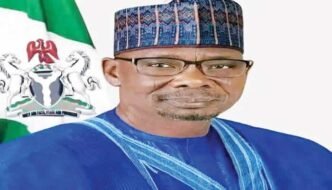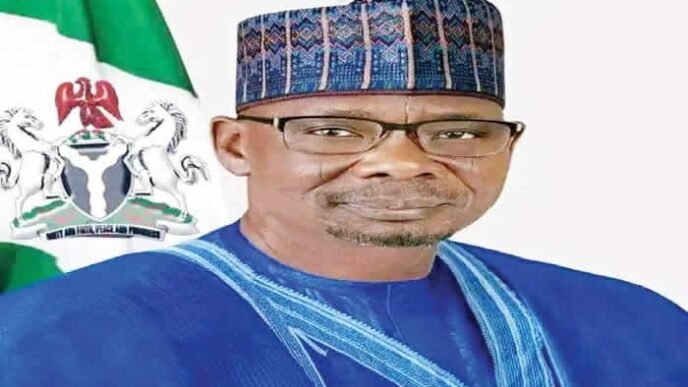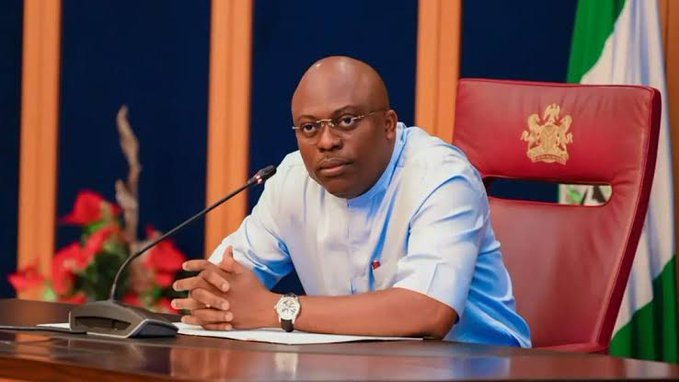The newly crowned 44th Olubadan of Ibadanland, Oba Rashidi Adewolu Ladoja, has called on President Bola Ahmed Tinubu to prioritize the long-standing demand for the creation of Ibadan State before the expiration of his tenure in 2027.
The respected monarch, who was crowned amid pomp and celebration in Ibadan on Friday, made the appeal during his first public address to indigenes and well-wishers gathered at Mapo Hall. He emphasized that the call for Ibadan State was not a new agitation but one rooted in history, fairness, and the need for balanced representation within the Nigerian federation.
The Call for Ibadan State
Oba Ladoja stated that Ibadan, as one of the largest cities in Africa with a unique history as a political and military powerhouse, deserves statehood recognition. According to him, Ibadan has long played a pivotal role in the socio-political development of Nigeria, yet continues to function as a major city under Oyo State without enjoying the benefits of being a state capital.
“Ibadan has contributed immensely to Nigeria’s history, economy, and governance. It is only just and fair that Ibadan is given its rightful recognition as a state. Our demand is not new. It is rooted in decades of appeals, and I am confident that President Tinubu will listen to this call before 2027,” the monarch declared.
He further stressed that Ibadan deserves the opportunity to harness federal resources, strengthen its infrastructure, and enjoy the full rights and privileges that come with being a state in the federation.
Historical Context of the Agitation
The demand for Ibadan State dates back to the 1970s when several groups began pushing for the recognition of Ibadan’s unique size, history, and importance in Nigeria. In subsequent years, different committees on state creation at the national level received proposals for Ibadan State but none materialized.
During the 2014 National Conference, Ibadan State was listed among the new states proposed for creation across the country. However, the recommendations of that conference were never implemented.
Analysts believe that the coronation of Oba Rashidi Ladoja, a former governor of Oyo State and a respected political leader in Nigeria, has given fresh momentum to the agitation. His position as Olubadan now places him at the intersection of traditional authority and political influence, strengthening the campaign for Ibadan State.
Why Ibadan State Matters
Supporters of the movement argue that Ibadan meets all the criteria for state creation as outlined by successive constitutional reviews, including population size, economic viability, cultural identity, and historical significance.
- Population Advantage: Ibadan is one of the most populous cities in Nigeria, with estimates suggesting over 4 million inhabitants in its metropolitan area. This makes it larger than several existing state capitals in the country.
- Economic Potential: The city serves as a hub for commerce, education, and industry. With institutions like the University of Ibadan, the first in Nigeria, and numerous research institutes, Ibadan has the potential to drive economic growth if elevated to statehood.
- Historical Relevance: Ibadan played a central role in pre-colonial Yoruba politics and later in Nigeria’s struggle for independence. Its history as the seat of the old Western Region Parliament at Agodi is often cited as proof of its capacity for governance.
- Balance in Federalism: Advocates argue that Ibadan deserves recognition to ensure fairer representation for the South West in Nigeria’s federal structure. Currently, Oyo State’s vast size often leads to administrative imbalances, with Ibadan’s interests sometimes overshadowed by other zones.
Political Implications
The Olubadan’s call for Ibadan State puts President Tinubu in a delicate but decisive position. As Nigeria’s first president from Lagos, Tinubu is widely regarded as a leader with deep roots in the South West. Many expect him to champion the cause of regional development, and Ibadan State could become one of the legacies of his administration.
However, the politics of state creation in Nigeria is complex. Any new state must pass through constitutional amendments, requiring two-thirds support from the National Assembly and approval by two-thirds of state assemblies across the federation. This makes it a rigorous process often slowed down by competing interests from other regions.
Political observers note that Tinubu, who has been consolidating his influence across Nigeria, may view Ibadan State as a strategic move to solidify his support base in the South West ahead of future elections and historical reckoning.
Reactions from Stakeholders
Following Oba Ladoja’s pronouncement, many indigenes of Ibadan and Yoruba leaders expressed excitement and optimism.
Chief Bayo Adelabu, a prominent son of Ibadan and current Minister of Power, praised the monarch’s appeal, noting that Ibadan State would bring rapid development to the city and surrounding communities.
“Ibadan deserves this recognition. For too long, we have carried the weight of being the largest city in West Africa without the privileges of statehood. The Olubadan has spoken the mind of the people,” Adelabu stated.
On social media, Ibadan indigenes launched hashtags such as #IbadanStateNow and #Before2027, reflecting strong grassroots support for the cause.
Nevertheless, some political commentators caution that while the demand is legitimate, it may face resistance from other regions also agitating for state creation. Nigeria currently has 36 states, and any additional state would likely trigger fresh demands across the federation.
The Symbolism of the Appeal
The timing of Oba Ladoja’s call is also significant. Coming just after his coronation, it signals a monarch willing to be both a cultural custodian and an advocate for development.
His personal background as a former governor and senator adds weight to his words. Unlike some traditional rulers who stay away from political advocacy, Oba Ladoja is expected to leverage his political experience and connections to push the Ibadan State agenda at the highest levels of government.
What Next?
The road to Ibadan State will likely require strategic lobbying, both at the federal and legislative levels. Civil society groups, Ibadan elites, and lawmakers from Oyo State are expected to play active roles in this renewed push.
If successful, Ibadan State would become the 37th state of Nigeria and the sixth in the South West. Analysts say its creation could ease administrative pressure on Oyo State, enhance federal presence in Ibadan, and give the city new opportunities for infrastructural expansion.
However, if the demand stalls, it may become a rallying point for political campaigns leading up to the 2027 general elections, with candidates likely to use the promise of Ibadan State to win support in the region.
Conclusion
The Olubadan of Ibadan, Oba Rashidi Adewolu Ladoja, has reignited the decades-old agitation for Ibadan State with his public appeal to President Bola Tinubu. By placing the demand at the forefront of his reign, he has given fresh impetus to a cause that resonates deeply with the people of Ibadan.
Whether Tinubu will seize this opportunity to carve his name in history as the president who granted Ibadan its long-awaited statehood remains to be seen. But what is clear is that the call for Ibadan State is louder than ever, and the next few years will determine whether it becomes a reality or remains another unfulfilled dream in Nigeria’s long history of state creation.














